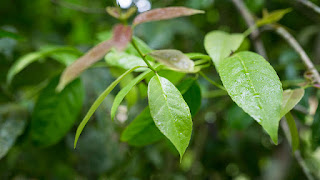From Beans to Brews: How Herbal Tea Is Revolutionizing Coffee Alternatives
For years, coffee has reigned as the go-to morning beverage for millions of people around the world. Its energizing jolt of caffeine and robust flavor have become synonymous with waking up and getting ready to tackle the day. However, in recent times, there's been a quiet revolution brewing in the world of beverages. Herbal tea, once seen as a mere side player, is now stepping into the spotlight as a powerful and refreshing alternative to coffee. Let's delve into the journey of how herbal tea is revolutionizing the landscape of coffee alternatives.
The Rising Demand for Alternatives
As health-conscious lifestyles and wellness trends continue to gain momentum, individuals are seeking alternatives to traditional coffee that offer both flavor and benefits. While coffee undoubtedly has its merits, its high caffeine content and potential side effects have led many to explore other options. This is where herbal tea comes into play. Known for its soothing properties and diverse range of flavors, herbal tea offers a wholesome alternative that resonates with those looking for a gentler caffeine experience.
A Symphony of Flavors
One of the most striking ways herbal tea is reshaping the beverage industry is through its diverse array of flavors. Coffee, though beloved, has a more limited flavor spectrum that revolves around its roast and bean origin. On the other hand, herbal tea presents an enchanting symphony of tastes, each derived from the infusion of various herbs, flowers, and spices. From the delicate floral notes of chamomile to the invigorating zest of peppermint, herbal tea offers an exciting journey for the taste buds that coffee often cannot replicate.
Wellness in Every Sip
Beyond its flavors, herbal tea boasts a myriad of wellness benefits that are turning heads in the health-conscious community. Different herbs used in herbal tea blends are known to offer a range of advantages, from aiding digestion and soothing stress to boosting immunity and promoting relaxation. This holistic approach to well-being is a significant factor contributing to herbal tea's rising popularity. People are not just drinking a beverage; they are sipping on centuries-old remedies that cater to their body and mind.
Caffeine Considerations
Caffeine sensitivity varies among individuals, and many find themselves seeking alternatives to coffee due to its potent caffeine content. Herbal tea steps in as a natural solution. While it's true that most herbal teas are caffeine-free or contain only trace amounts, there are also options like Yerba Mate and Guayusa that provide a milder caffeine kick without the jitters associated with coffee. This balance allows individuals to enjoy an energy boost without the side effects of excessive caffeine consumption.
A Ritual of Tranquility
Coffee culture often revolves around the hustle and bustle of life – a quick caffeine fix on the go. Herbal tea, however, encourages a more mindful and tranquil approach. The act of brewing herbal tea becomes a ritual in itself, inviting individuals to take a moment to steep their thoughts and savor the process. This mindful experience aligns with the broader wellness movement and has captured the hearts of those seeking a slower-paced, reflective start to their day.
Conclusion
In the grand symphony of beverages, herbal tea is emerging as a harmonious alternative to the crescendo of coffee. Its diverse flavors, holistic wellness benefits, and gentle caffeine offerings are resonating with a generation that values both taste and well-being. While coffee's reign is far from over, the rise of herbal tea as a coffee alternative signifies a shift towards a more mindful, flavorful, and balanced approach to our daily brews. So, the next time you're pondering your morning beverage, consider the soothing embrace of herbal tea and embark on a journey that is both refreshing and transformative.



Comments
Post a Comment